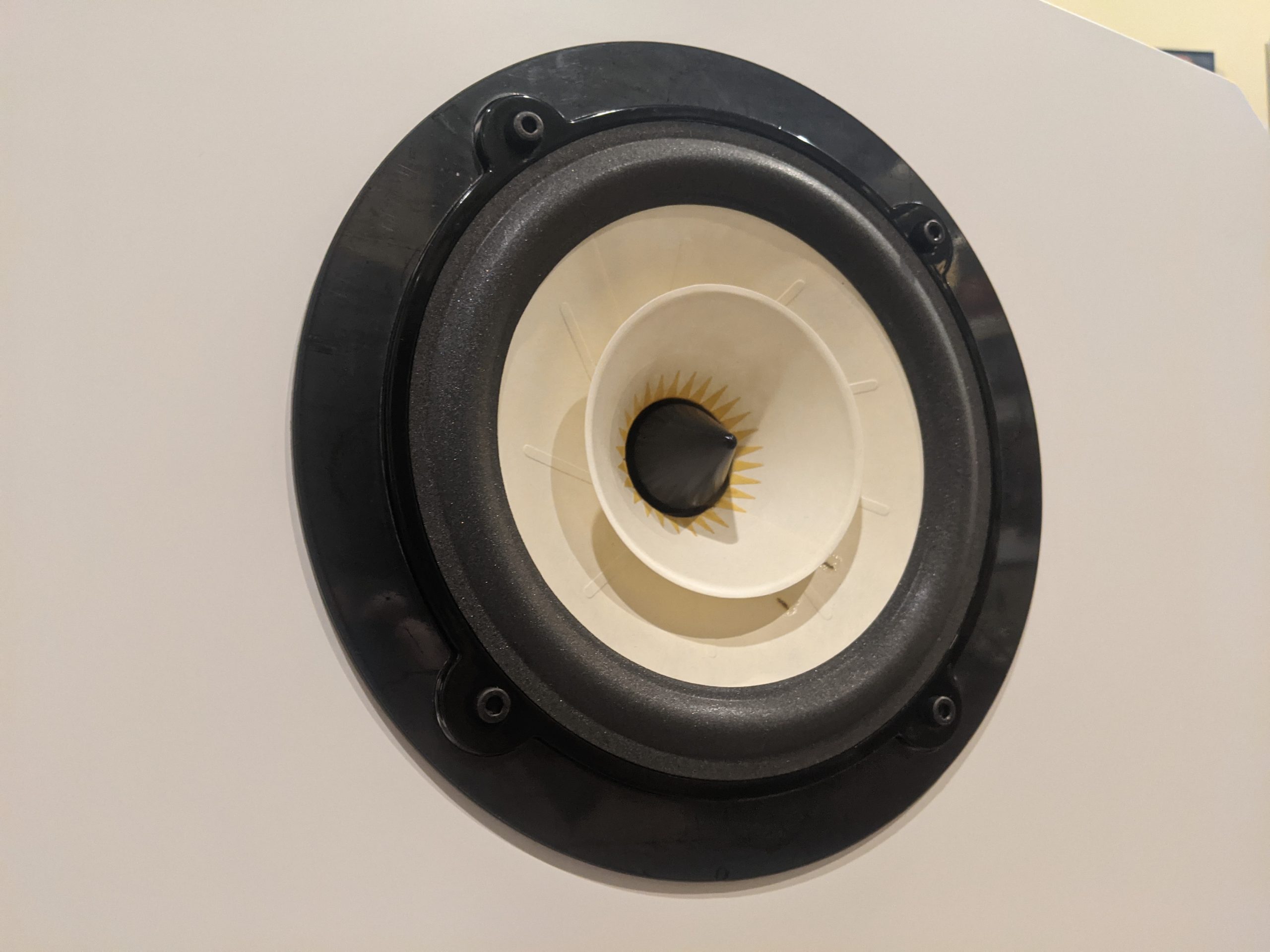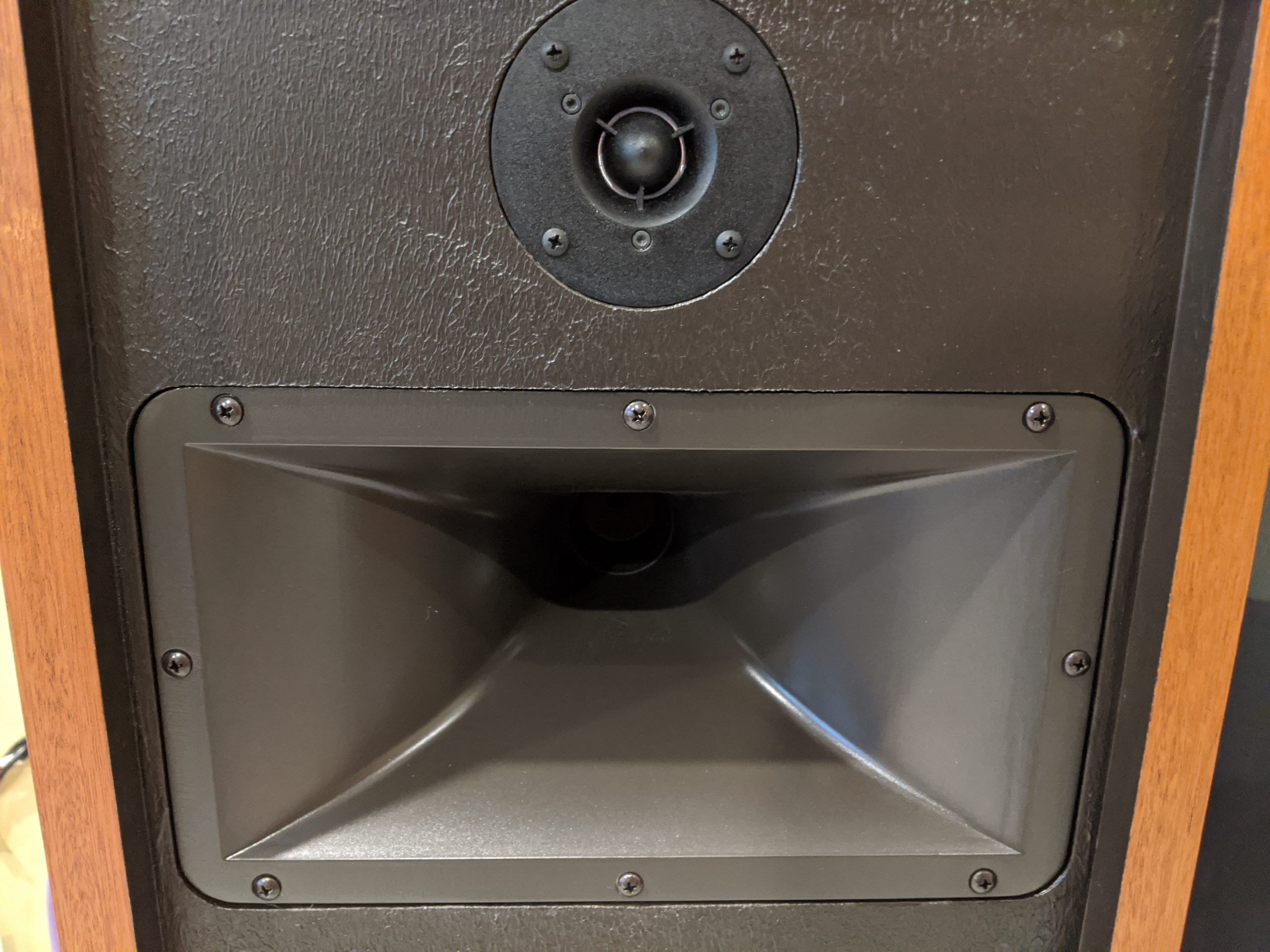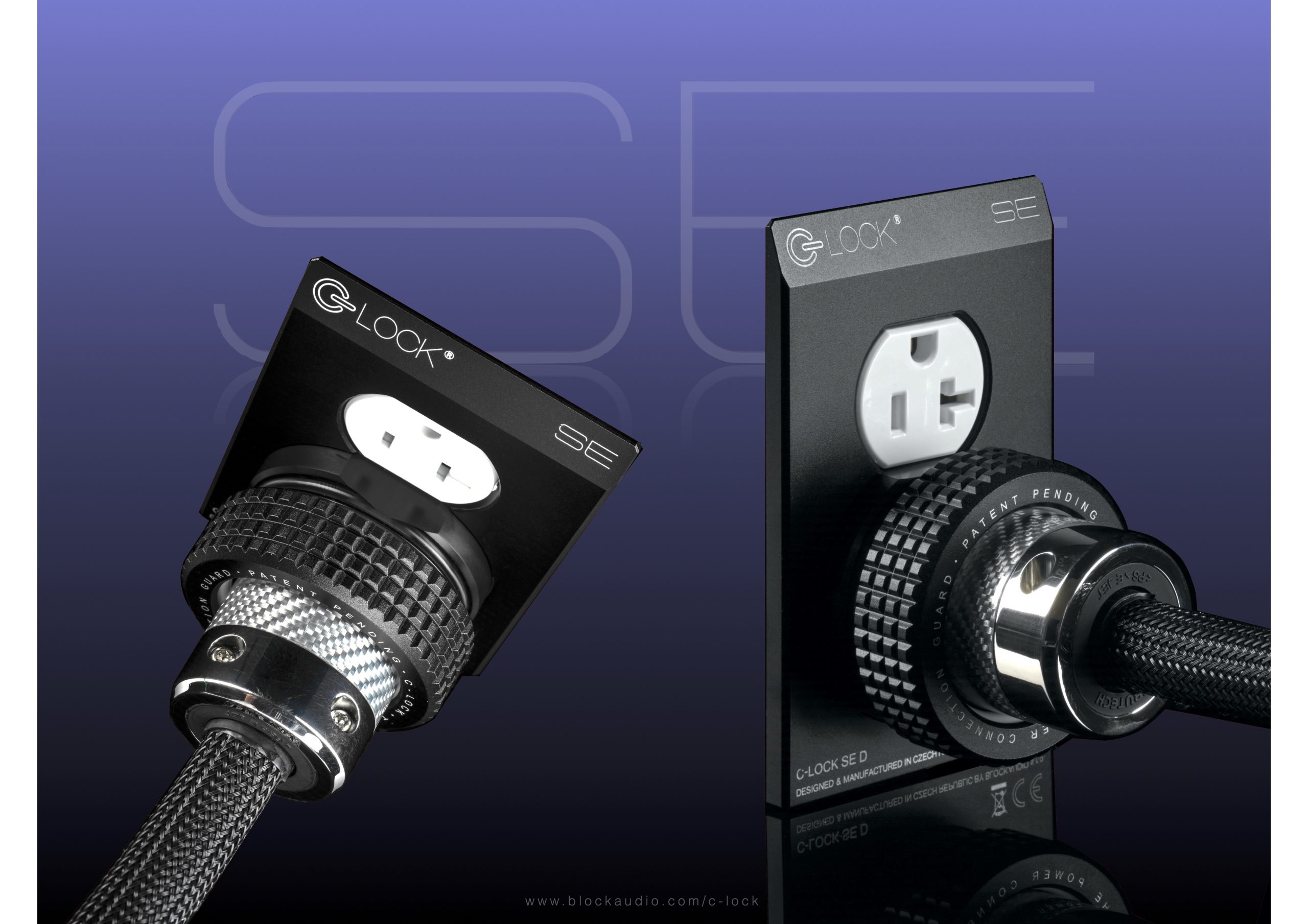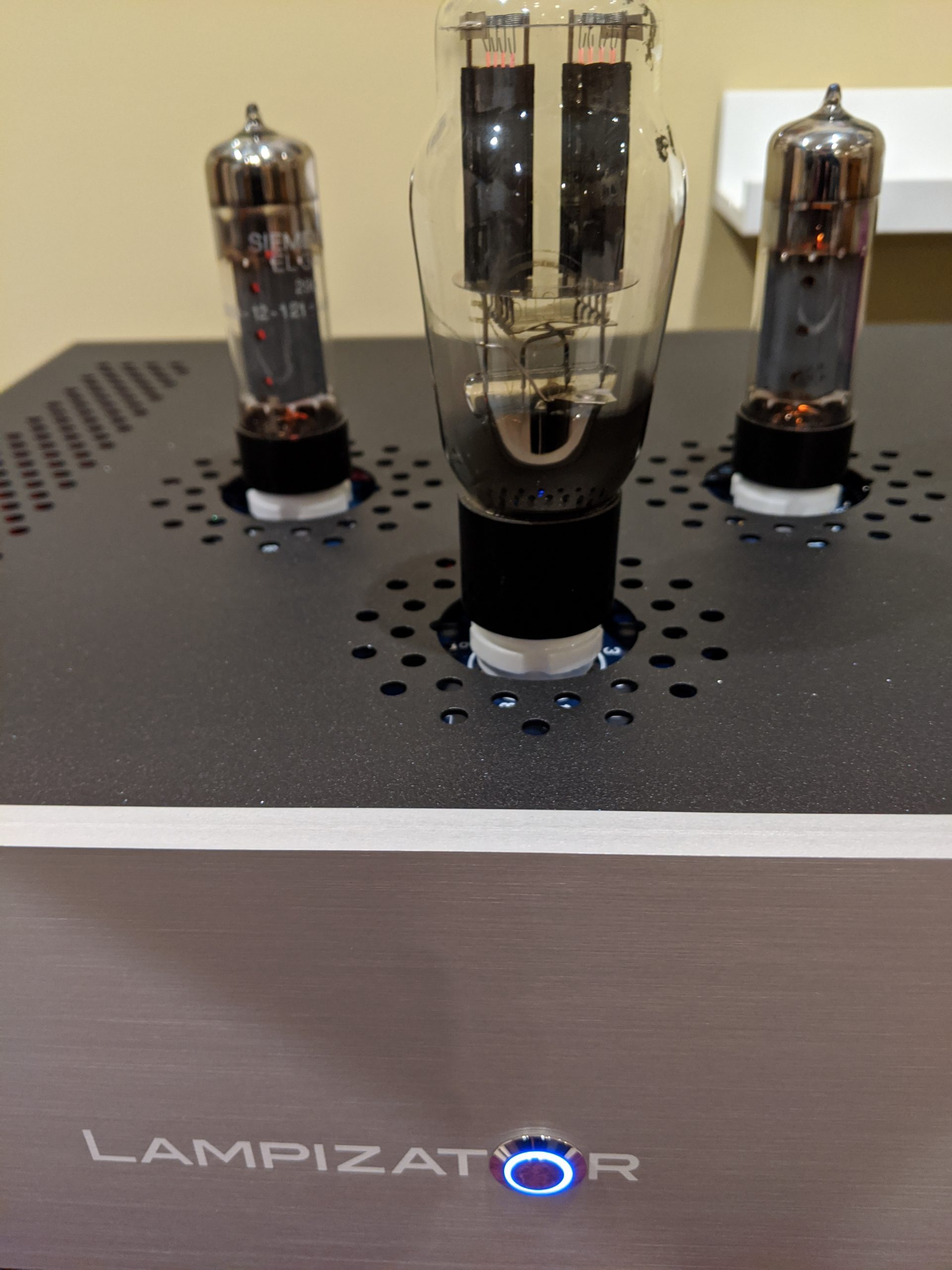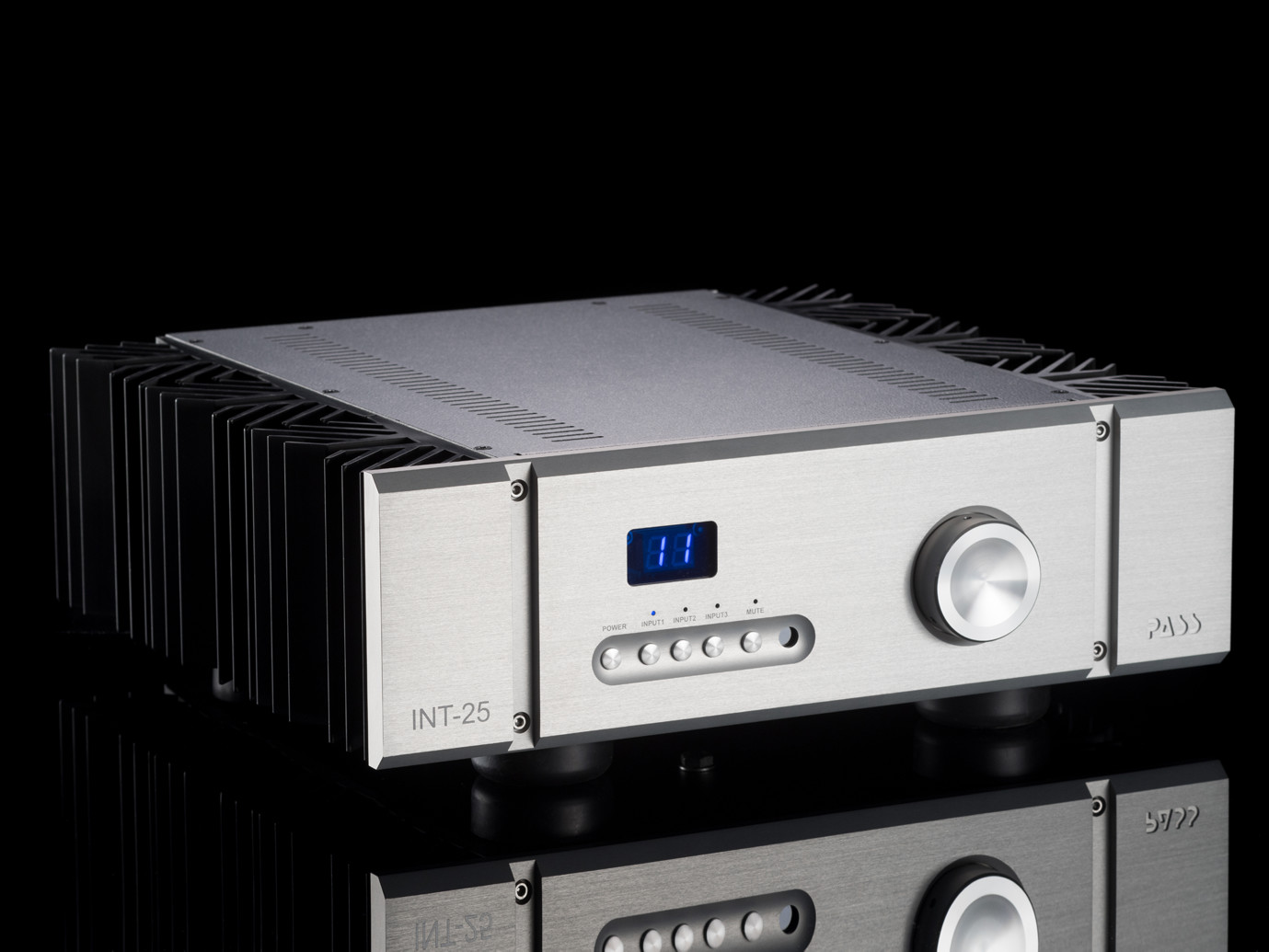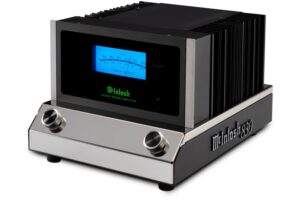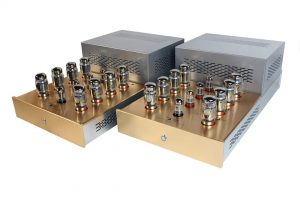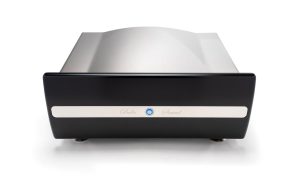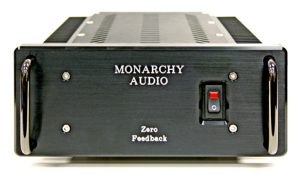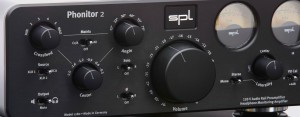
This is unequivocally NOT a review; it is also the most difficult non-review I've ever written. This is an experience of the audio-kind; a transitory recounting of a few months with one of the unique products in audio; the Unison Research Unico Upower Booster Amplifier. I became interested in the Upower after reading about it in a CES 2013 report. With a new pair of speakers beckoning, I contacted Marc Phillips of Colleen Cardas Imports, the USA importer of Unison Research, and he generously loaned me the Unico Upower for an extended audition. And when I say extended, I mean it. Due to an injury, I couldn't write for weeks. Marc and Colleen were kind enough to let me keep the amp until I could climb back in the writer's saddle again. My sincere thanks to both... 16 weeks later, the keyboard is warm against my fingertips, Marc Cohn is pressurizing the room, and I type with wild abandon...
Heh.
Ah... Those Italians!
The sleekly beautiful Italian-born Unico Upower arrived well-traveled and broken in. My first impression: It is an outwardly simple, yet elegant piece of audio gear. While I had no idea what to expect, I was very interested in hearing what this amp could do with my two tube amps driving it. The Upower is purpose built to boost low power tube amplifiers and in turn, drive more inefficient loudspeakers without compromising the tube touch. I had zero experience with Unison Research products before the Upower, but Upower has a reputation for building excellent tube and solid state audio gear, so I had high expectations. Unlike my DIY Firstwatt F4, which only has current gain, the Upower boosts both voltage and current, providing up to 100 watts per channel in ratio with the amp driving it. The Unison Research Unico Upower runs barely warm in Class A, and without breaking a sweat, will provide up to a 4X boost to a tube amp of 25 watts per channel or less, up to its limit of 100 watts per channel. I have a rudimentary understanding of electronics, but trying to explain the circuit this amp utilizes is a bit of a challenge, so I recommend taking a tour of the Upower White Paper available on the Unison Research website. It is an interesting read. While I won't jump to describe the circuit, I can discuss the potential uses for this niche within a niche product.
Upower in Use
Let's have a look at how the Upower could work in the real world: Let's say you own a fantastic sounding 45 Single Ended Triode amp that you could never bear to part with, but its modest 2 watt output is not enough to properly drive those spectacular new speakers you just can't live without. Problem you say? Damn right it is... it's a dilemma that many of us who gravitate toward the sound of low-power SET amps have had time and time again. Over the years I have parted with a wonderful Don Garber Fi-X 45/2A3 amp and a fine pair of 300B monoblocks for this very reason. Now along comes the Upower and through the miracle of electronic amplification, morphs those same 2 watts into 8; plenty to drive those beautiful horns you covet! Unfortunately for me, I no longer own speakers that 8 or 10 or even 14 watts can juice. With a pair of Von Schweikert Audio VR-35s now sitting in my listening room I need some volts times amps> electrical pressure, and while 10 watts won't do the trick,10w tube + 30w Upower = 40 serious class A watts (i.e.4X Boost)... that could be a very different story.
In set up, the Upower is an uncomplicated, yet counter-intuitive amp. Rather than RCA or XLR inputs, the Upower has one set of speaker terminals in the middle of the rear that are the amp's only inputs. A pair of speaker cables must be run from each speaker output terminal on the affiliated tube amp and connected to the input speaker posts on the Upower. On each side of the center speaker-level inputs are bi-wired sets of speaker posts for the right/left outputs to the speakers. Other than the IEC inlet on the rear, there is a side mounted power switch and a power indicating LED on the front underneath the small but striking Unison Research badge. That it's... Turn it on, let it warm up... Simple.
The Upower does in fact pass the sonic signature of my tube amps. I could easily distinguish the difference between my reference MonaClone 845 amp and my Eico HF-86 push-pull amp. The "modern" sound of the 845 with its faster transient response, deeper bass and more extended top end sounded very different from the smooth classic sound of the Eico's glorious EL-84 midrange. When the mission is to protect the sonic contributions of the preceding amplifier, it is truly difficult to describe how the Upower amp affects the system beyond additional power. Clearly it adds a little spiciness of its own device; greater drive and macro dynamic punch, and a hard push of the stage forward and out. It is also seems to be a little hot on top and this, the notorious double edge, can be good or bad.
Even though the VR-35 can be driven with as little as 35 watts (and I have successfully driven them with even less on the top while bi-amping the bass), it is still asking a lot for the 40 watts of 845/Upower to drive both the MTM array and the rear 10" woofer. With the Upower driving both sections of the VSA's, the bass was rounded and slightly flabby and I could hear a little strain when cranking the dial for a session of serious rock n' roll. Even changing to the 14 watt Eico didn't make much difference in this regard. This isn't a fault of the Upower—the speakers needed more power--so to gain a bit of perspective, I added my 100 watt Channel Islands D100B amps to drive the rear-firing woofer sections, leaving the tube amp and Upower to drive the two 6" mid-range drivers and 1" tweeter section of the front mounted concentric MTM array. Now we're talking! With the easing of the load, the stage became huge with a wonderfully vivid 3D quality where instruments and voices floated musically in the air. The beauty of tubes, the detail and punch of serious solid state; a fabulous combination to be sure!
Relieved of driving the woofer's 25Hz to 80Hz output, the combination of the tube/Upower amps played every cut with a smooth self-reassured sound and edgy kick-ass attitude depending on the music played. Everything I threw at this combination from Lucinda Williams to Yes to Larry Carlton, all sounded terrific. Not that I couldn't hear warts; they were there for sure, mostly in the form of strident, peaky treble when pushed, and some of the poorer recordings were a bit of a difficult listen. But was this the fault of the Upower, my tube amp, or both?
What I loved most about the 845/Upower combination was the humongous stage, wide as the room and pushed well forward of the speakers with layer after layer of Instruments and voices filling the room. There was separation and tonal integrity offering a wonderful transparency into the soul of the music. But is that due to the tube amp or the Upower? Heck, I guess its both! With this SYSTEM, I can hear what the musicians are trying to tell me, which is the highest praise I can bestow. I know this is not entirely the province of the Upower and it is probably not lost on you, that to achieve this sound I am using two stereo amps and two mono amps with a total retail value of nearly $11,000 dollars not including tubes. I guess it should sound great, huh?
In contrast to the extremely quiet DIY F4, the Upower passes a slight low level hum and a bit of tube noise from my SET amp. It is somewhat less than the tube amp on its own, but is indeed present. However, just as with the tube amp alone, this cannot be heard when music is playing, so in reality is only an idle annoyance. While the F4 is quieter and offers a more refined sound, the additional wattage of the Upower provides slam and zing as well as a higher volume before distortion sets in. Comparing them directly is not really fair, as they are different beasts altogether, but since they occupy the same unique booster space in audio, I will. Using the common Pirates of the Caribbean cinematic analogy, the F4 has the brash romanticism and quiet confidence of Will Turner; on the other hand, the Upower harnesses the rum swilling, swashbuckling unpredictability of pirate Captain Jack Sparrow. Okay, so its not such a common analogy... but you got the point, right? Poetic license... Smiley Face... I just can't get over the hugely dynamic sonic picture as wide as the great plains. Its the aural equivalent of watching John Wayne in 1956's Technicolor masterpiece, The Searchers. Well, maybe not quite that good, but you get the picture... Winky Face. I do think power plays a very big role here; the Upower has enough guts to wake up the drivers in the VR's, and wake them it does, but a least with my gear, it lacks ultimate refinement, and like Captain Jack, is a bit rough around the margins, especially in the treble extremes where a bit of glare and hardness creep in when I turn it up.
The Upower is the most confusing audio component I have ever had in my home. There are moments, songs, complete works, when it sounds so good that you'd have to pull it from my cold dead hands to have it back, but conversely, it has a mind of its own, and can be unkind to some recordings. Is this the fault of the Upower or my amp? Truth is, I just don't know. There are too many variables. Marc Phillips suggested very short speaker cables to connect my tube amp to the Upower, but I didn't have anything suitable on hand so I used both a 12' pair of Kimber 4TC and an 8' pair of homebrew TNT recipe braided CAT 5 cables. Could a nice pair of 3 foot speaker cables have solved the stridency issue? Perhaps... I just don't know.
Can U Power?
My several month relationship with the Upower is over. What then, did I learn? Mainly that even in my relatively small room, the VSA's demand more power than this combination could give when the volume knob gets twisted clockwise too far. Until the point of no return, it sounded quite fabulous, riveting even. The problem was, every time I started to listen, I wanted to pull a "Sweet Home Alabama" and TURN IT UP! The Upower could be an incredibly useful amplifier for those with flea-watt amps who want to run less sensitive speakers or have multiple speakers in their audio-stable. I admit to being in a conundrum, I wanted to add it to my own collection of amps, but 40 watts was not enough to keep the dogs of clipping at bay and my speakers from screeching an occasional NO MAS! Perhaps that is a bit dramatic, and yes, I could just keep the volume in check as I do with the F4—it can't drive the VSA's loudly without running out of gas either. The Upower was just so much dang fun to listen to loudly that I really regretted the day I boxed it up. But at the end of the day, it didn't make sense for me to keep it.
MAKE SENSE!?! Did an audiophile actually write those words for all to read?
So here is the obvious question: Who needs an amp like the Upower? There is a logical and almost doltishly simple answer to this question: The Upower could be for anyone who has found themselves evolving to speakers which are not compatible with a dearly beloved low powered tube amp. Are you that person? Do you still want to hear that rich, organic tone without letting that treasured single-digit thermionic device go to the den of audio-gone antiquity for resale? Then this amp could be the ticket to paradise.
Duly note: It still takes system matching to get it right.
Bottom line: I really and truly enjoyed this amp. I think it could be tremendous with the right speakers—mine were only 90 percent the way there. Because of all the variables, it is impossible for me to say how good this amp could be with any measure of certainty. Here is what I will say; if you believe you are a candidate for this amp and your speakers are a relatively easy load or your amp is more toward the 25W per channel upper input limit, then the Unico Upower could be one hell of a lot of fun. Call up your local dealer and check it out, it may be the missing link to help you keep that precious tube amp in your system.
Retail Price $2895
Unison
http://unisonresearch.com
Colleen Cardas Imports
http://colleencardasimports.com




